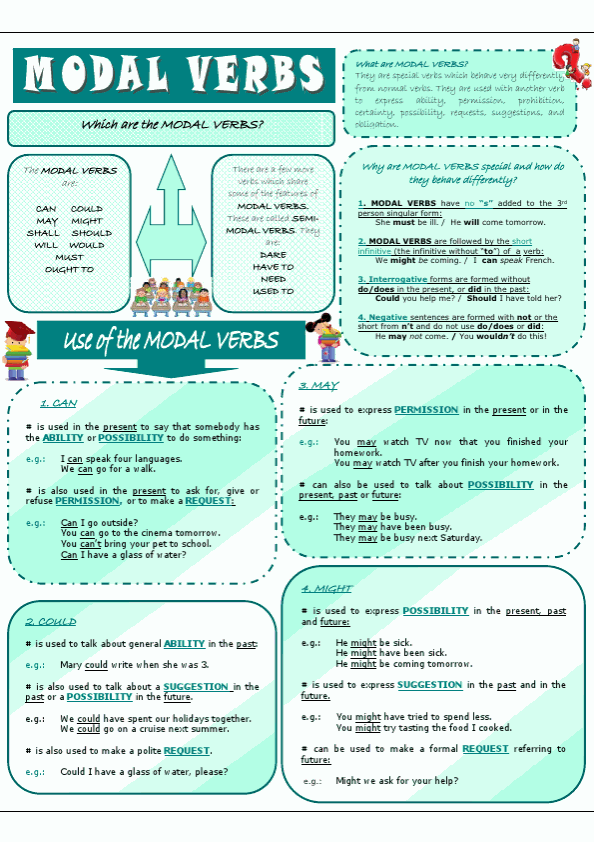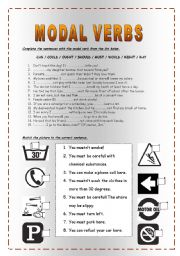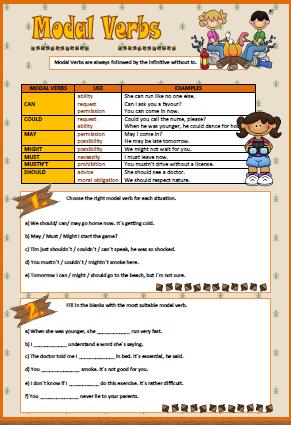
Shall used to be a lot more popular, and it still is in BritishĮnglish, but less so in standard American. Verbs to give advice to someone, as in "You shouldn't do that." And something that is special to will, and, to a lesser extent, shall, is that they can form the future. Happen, this would happen, except for this one other problem, which is that I'm sleepy. So I'm using would to offer an excuse, I'm saying this could possibly This sentence, we would say "I would make the bed, but I'm tired." Because the possibilityĮxists, however remote, that the bed would be made by me, but I don't feel like it. Isn't going to happen or maybe could happen. Like this to talk about conditions, or stuff that Ten pounds of broccoli!" And that's expressing yourĪbility to do a thing. Or to give someone permission, like "You may enter." You can use a word likeĬan to express ability. Must remove your shoes." Similarly with may, weĬan use may to express a possibility, like saying "It may rain." That's something thatĬould possibly happen. You take off your shoes, they would say "You You enter someone's house and they demand that Ride the Doom-Coaster." This is like a necessary condition. Want to ride has a height requirement, the sign probably says "You must be this tall to

But if you're at an amusement park and the roller coaster you To express a likelihood, a high likelihood. "He must have gone that way!" That detective is using must So, if you imagine aĭetective looking up from some tracks, some muddyīootprints on the floor, with her magnifying glass. So the word must, right? We can use the word must Which, like we said,Įstablishes conditions. That modal verbs can do is indicate modality. Version of English you speak, across all varieties ofĮnglish you cannot to should. So there's no such thing as to may, or to could. They don't have a to form, this is what we call the infinitive. Something else that modalsĭo is actually something that they don't do. I can do it, you can do it, she can do it, they can do it, we can do it. Sentence is going to take the modal verb the same way. So you can take any one of these modals and you can use any subject in the world and it's not gonna change, right? You take a word like talk, for instance, and you would say I talk, Diane talks. Thing number one, theyĪgree with everything. May, might, must, can, could, shall, should, will, would. And whether or not we have the obligation or requirement or need to do something. Whether or not something is possible, or whether or not we have To determine if something is likely to happen, orĬertain to have happened. These verbs to express conditions on stuff. But what is modality? My fellow grammarian, Have special properties and help other verbs. Please note that British English spelling is used on this website.- Hello grammarians! Today we're gonna talkĪbout a class of auxiliary, or helper verbs, called the modal verbs. Ought to are examples of semi-modal verbs. Semi-modal verbs are composed of two or more separate words ending with ‘to’. Will you join us for coffee? Won't you come in? I shall be in London on Monday (or I'll be. I've revised so I should be ready for the test. You should take an umbrella in case it rains. You must be tired after your long journey.

The President may come to our offices if the meeting finishes before 5 pm. The subject: Can you? NOT Do you can? MODALĬan I come with you? ('May' is also used.)Ĭharlie could swim when he was four years old.Ĭould you tell me the way to the station please? 5) Questions are formed by inversion with 4) The negative is formed by the addition of not / n’t:ĭon’t can. 3) They do not have a past form: He/she canted. Modal verbs have the following characteristics: 1) They do not have participle or infinitive forms 2) They do not take the ending -(e)s in the third-person singular. Possibility, prediction, speculation, deduction and necessity.


Modal verbs are a type of auxiliary verb which express the mood of another verb.


 0 kommentar(er)
0 kommentar(er)
